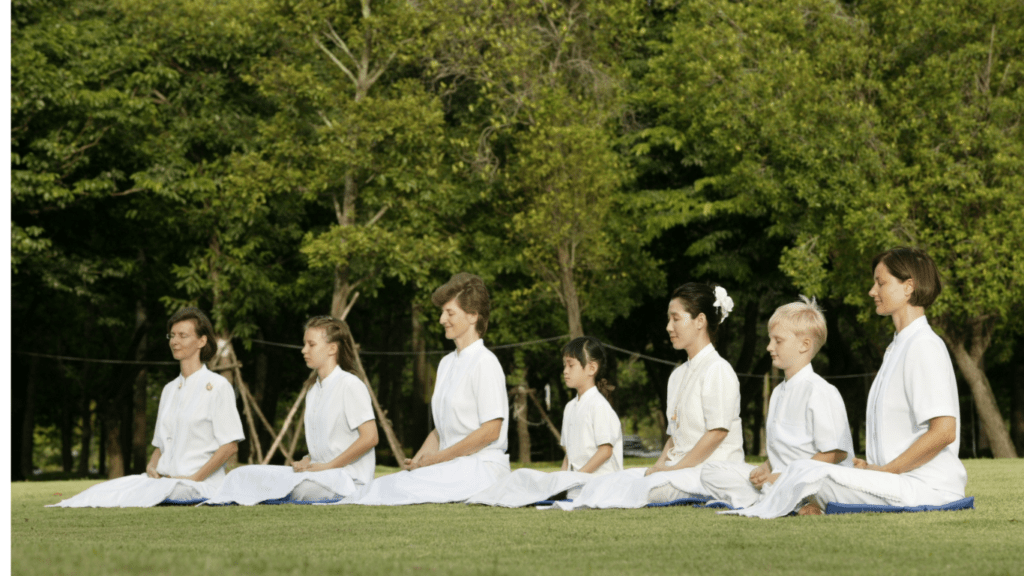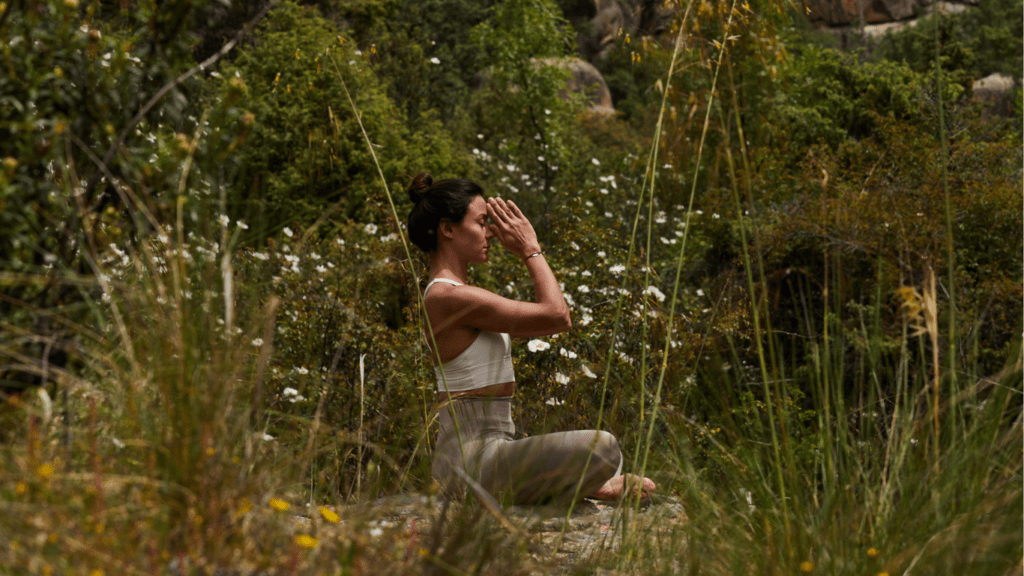The Healing Power Of Nature
Being immersed in natural surroundings offers a myriad of mental health benefits. When I spend time in the wild, my stress levels decrease significantly. Research from the Journal of Environmental Psychology shows that spending just 20 minutes in nature can reduce cortisol levels, offering a quick way to combat stress.
Exposure to natural environments also boosts mood and emotional well-being. According to a study published in the Proceedings of the National Academy of Sciences, people who took a 90-minute walk in a natural setting reported lower levels of anxiety and reduced brain activity linked to mental illness compared to those who walked in an urban environment.
Nature retreats, particularly ones involving activities like hiking, kayaking, or simply bird-watching, enhance cognitive functions. A study in Psychological Science found that individuals who spent four days in nature without electronic devices performed 50% better on creative problem-solving tasks.
The physical components of nature contribute to its healing power. Fresh air, sunlight, and natural sounds like bird songs or rustling leaves can lower blood pressure, improve cardiovascular health, and promote relaxation. In addition, phytoncides—airborne substances released by plants—boost the immune system, as evidenced by the significant increase in natural killer cells among forest visitors reported in a study from Environmental Health and Preventative Medicine.
Incorporating nature into daily routines can be simple and effective. I find that short, regular activities like morning walks in the park or weekend hikes in nearby trails provide ongoing mental health benefits.
Psychological Benefits Of Nature Retreats
Time spent in nature offers profound psychological benefits. It can bring about stress reduction and enhance creativity, transforming overall mental well-being.
Stress Reduction
Nature retreats provide an effective means to reduce stress. Exposure to natural environments lowers cortisol levels, the hormone associated with stress. A study published in Frontiers in Psychology found that spending at least 20-30 minutes a day in a natural setting significantly reduced cortisol levels in participants. Combining activities like hiking and nature walks further enhances this benefit. Engaging in physical movement amidst natural settings helps relax the mind and body. Disconnecting from daily digital distractions also contributes to lower stress levels. As I walk through the woods, I feel the calming effect of the trees and the sounds of wildlife. Unplugging from devices and immersing in nature seems to provide an unparalleled sense of peace.
Enhancing Creativity
Natural environments have a substantial impact on creativity. A study by Environmental and Behavior reported that individuals who spent four days in nature without access to electronic devices saw a 50% improvement in creative problem-solving tasks. The diversity of sights, sounds, and experiences in natural settings seem to stimulate the brain differently than urban settings do. When I escape to a nature retreat, I notice my mind feels clearer, and new ideas flow more readily. Engaging in activities like bird-watching or simply observing natural patterns can spark inspiration. The brain escapes the repetitive stimuli of urban life, leading to innovative thinking and enhanced cognitive flexibility.
Nature retreats present a potent solution for enhancing mental health by reducing stress and boosting creativity. The psychological benefits of spending time in the wild are supported by compelling research and personal experiences. Nature provides an accessible and effective way to rejuvenate the mind.
Physical Health Improvements
Spending time in nature isn’t just good for your mind. It provides substantial benefits for physical health, boosting immunity and promoting physical activity.
Boosting Immunity
Natural environments contain diverse microbial life. Exposure to these microbes can strengthen the immune system by enhancing its ability to respond to pathogens. A study by the University of Illinois found that people who spend time in green spaces have more robust immune responses. Breathing in phytoncides, compounds emitted by trees and plants, can also increase the activity of natural killer cells, vital for fighting off infections and cancers. This direct interaction with nature fortifies the body’s defense mechanisms, making you less susceptible to illnesses.
Promoting Physical Activity
Nature retreats encourage physical activity. Engaging in activities such as hiking, walking, or swimming in natural settings can significantly improve cardiovascular health. According to the American Heart Association, moderate-intensity physical activities like brisk walking reduce the risk of heart disease, high blood pressure, and type 2 diabetes. Walking on uneven terrain, climbing hills, and even balancing on rocks activates different muscle groups compared to urban exercises. This variety not only provides a full-body workout but also enhances balance and coordination. Through these physical activities, nature retreats offer a holistic approach to fitness that urban environments often lack.
Types Of Nature Retreats
Nature retreats vary widely, each offering unique experiences that cater to different preferences and needs. I’ll delve into some of the most popular ones.
Forest Retreats
Forest retreats immerse individuals in lush, green environments. These retreats offer activities like hiking, bird-watching, and meditation among trees. Studies show that forest bathing, or “shinrin-yoku”, can lower blood pressure and cortisol levels. Forest retreats provide a quiet, serene setting, making them ideal for mindfulness practices and stress reduction.
Mountain Expeditions
Mountain expeditions challenge the body and mind. These retreats often involve hiking, climbing, and camping at high altitudes. The physical exertion combined with breathtaking views helps improve cardiovascular fitness and mental clarity. Research indicates that spending time at higher altitudes can boost mood and decrease symptoms of depression. Mountain expeditions also offer a sense of achievement and resilience, enhancing overall well-being.
Choosing The Right Retreat For You

Selecting the right nature retreat enhances your mental and physical well-being. Tailor your choice by considering specific criteria to maximize benefits.
Assessing Your Needs
Identify primary objectives before selecting a retreat. Whether you seek stress relief, physical activity, or social interaction influences your destination. For stress reduction, choose retreats focused on meditation or yoga, like those in forest settings. If physical activity is a priority, opt for mountain expeditions involving hiking or climbing. Those valuing social engagements can consider group retreats offering team-building exercises and communal living.
Evaluate your fitness level to find suitable retreats. Beginners might prefer guided walks and light activities, while seasoned adventurers could choose challenging treks or climbs. Assessing your comfort with solitude versus groups is vital. Introverts might thrive in serene, secluded locations, whereas extroverts could benefit from social environments.
Popular Destinations
Numerous locations worldwide cater to different preferences and needs.
- Yosemite National Park, USA: Ideal for all fitness levels with diverse trails and stunning landscapes, perfect for mindfulness and physical activities.
- Swiss Alps, Switzerland: Offers challenging hikes and breathtaking scenery, suited for adventurous individuals seeking physical and mental challenges.
- Bali, Indonesia: Yoga and meditation retreats abound, providing stress relief and relaxation in a tropical setting.
- Banff National Park, Canada: Combines physical activities like hiking with opportunities for solitude and reflection in a serene wilderness.
- Black Forest, Germany: Known for its lush greenery, ideal for forest bathing and stress reduction within easy access to European travelers.
Choosing the right retreat involves understanding your goals and preferences. This ensures you experience the full range of benefits nature offers.
Preparing For Your Retreat
Preparation is key to ensuring a fruitful and stress-free nature retreat. Proper planning will enhance your experience and maximize the benefits of reconnecting with nature.
Essential Gear
Packing the right gear is critical for comfort and safety during your retreat. Essentials include:
- Clothing: Opt for moisture-wicking fabrics and layer your clothing to adapt to changing weather conditions. Include a weather-resistant jacket and sturdy hiking boots.
- Backpack: Choose a backpack with adjustable straps and multiple compartments for weight distribution and ease of access.
- Hydration: Carry a reusable water bottle and a portable water filtration system for refills from natural sources.
- Navigation Tools: Bring a map, compass, and GPS device. While electronic devices are useful, knowing traditional navigation techniques can be lifesaving if batteries die.
- First Aid Kit: Include bandages, antiseptic wipes, pain relievers, and any personal medications. Outdoor survival kits often have components for common injuries.
- Shelter: If camping, pack a lightweight, durable tent, sleeping bag, and sleeping pad for insulation.
- Food Supplies: Bring non-perishable, nutrient-dense foods such as nuts, dried fruits, and energy bars. A portable stove can be useful for cooking meals.
Mental Preparedness
Being mentally prepared is just as important as having the right gear. Entering a nature retreat with the right mindset ensures you gain the maximum benefits.
- Setting Intentions: Define clear goals for your retreat, whether it’s relaxation, adventure, or self-reflection. This focus will guide your activities.
- Digital Detox: Commit to disconnecting from digital devices to fully immerse yourself in the natural environment. Inform close contacts of limited accessibility for emergencies.
- Mindfulness Practices: Incorporate mindfulness techniques such as meditation or deep breathing exercises to enhance the calming effects of nature.
- Flexibility: Be ready to adapt to unforeseen circumstances, like sudden weather changes or trail closures. A flexible mindset enhances resilience and enjoyment.
Proper preparation enables a smooth and enriching nature retreat, allowing you to fully experience the healing power of the wild.




